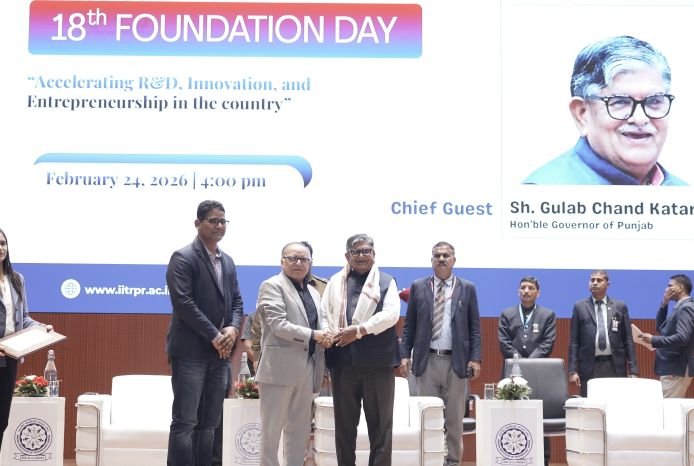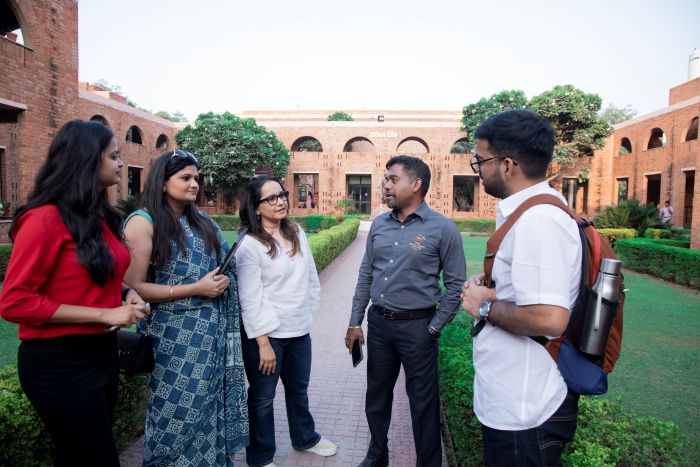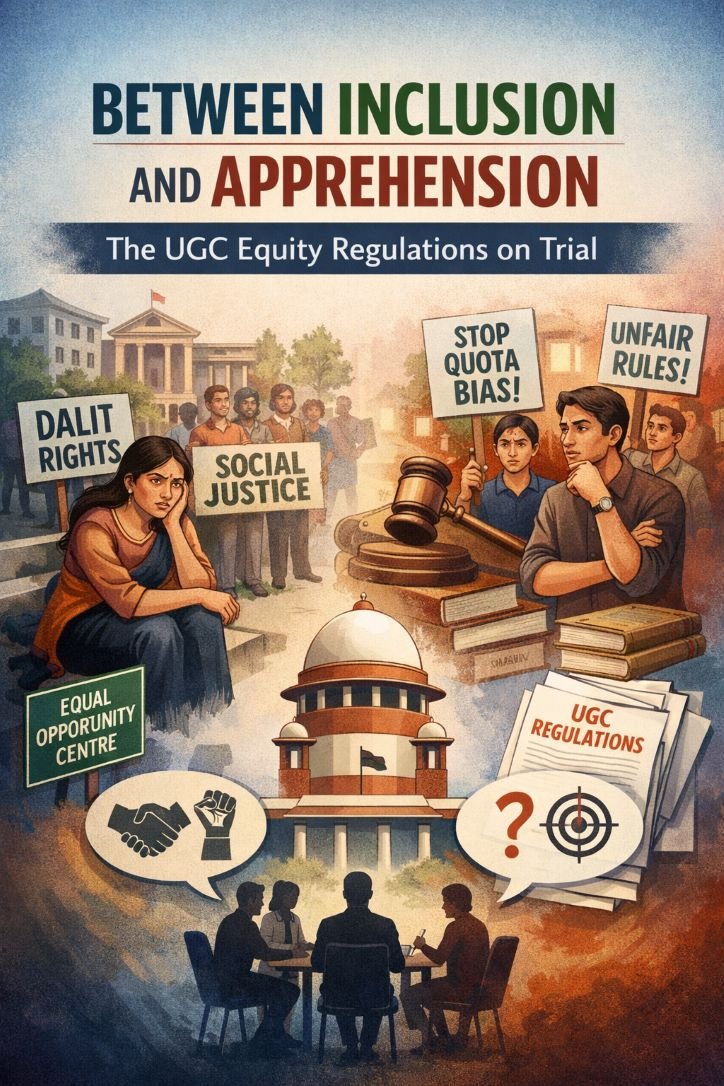
The counting of votes for the Delhi University Students’ Union (DUSU) elections held on September 27 , which has been postponed by the Delhi High Court (HC) on a petition filed by Prashant Manchanda, a practicing advocate, seeking directions for the Government to act against students defacing public property during the DUSU Elections and cleaning up of defacement of public properties during this year’s campaigning, may be delayed further as the Delhi University authorities along with chief returning officer are yet to file their report to the court.
The HC had on October 21 directed the university to satisfy it that its directions in cleaning has been done. As a result, the university VC Yogesh Singh and chief returning officer Raj Kishore Sharma inspected all campuses and other places if the defacement has been removed. It is expected that in the coming week, the Court will pronounce its orders on the counting embargo.
It may be recalled the High Court had allowed DU to continue with elections but has imposed a crucial condition-barring the university from counting votes until it satisfies the court that all posters, hoardings, graffiti, and other campaign-related materials have been removed and public property has been restored.
Hearing the petition (W.P.(C) 7824/2017), the bench of Chief Justice Manmohan, along with Justice Tushar Rao Gedela, severely criticized the University for its failure to take disciplinary action against students campaigning in this year’s DUSU elections, stating that the institution “lacked moral authority and courage.” MCD in its submission said it removed four truckloads of material that included 16,000 boards, 7,000 hoardings, two lakh posters/pamphlets and 28,500 banners.
During this election campaign from September 13 to September 26, even the Delhi metro property was defaced, which too complained about it. The court accused the University’s officials of lacking courage, will, and moral authority to initiate action. The court remarked, “You lack courage and moral authority. You have more power than us. You can discipline a student. But you can’t deal with 21 students?”.
The petitioner argued that Lyngdoh Committee Report was being violated, despite its endorsement by the Supreme Court. The Lyngdoh Committee, formed by the Ministry of Human Resource Development (MHRD) in 2006 following a Supreme Court directive, was tasked with reforming student elections to eliminate the influence of money and muscle power. The Committee’s guidelines prohibit students with criminal records or misconduct from contesting elections and limits the spending to Rs 5000 for a contestant. The guidelines also said no candidate shall be permitted to use printed posters, printed pamphlets or any other printed material for canvassing and they may only utilise hand-made posters.
Manchanda criticized the students’ actions, arguing that they should be held both jointly and individually liable for the damage caused to public property. He expressed concern that such incidents recurred with each election cycle and highlighted the alleged use of money power, citing the presence of luxury car convoys during campaigns. He also claimed that the convoys of cars disrupted traffic and inconvenienced schoolchildren.
The Municipal Corporation of Delhi (MCD) will recover over Rs 4.55 lakh from Delhi University for the costs incurred in removing illegal hoardings, posters, and banners that defaced public property during the recent students’ union elections. The HC earlier directed Delhi University to bear the expenses incurred by various authorities, including the MCD, government departments, and Delhi Metro, for restoring public property. The university has the right to recover the amount from the candidates responsible for the defacement but as of now no such notice has been served though the returning officer for the elections, called a meeting of all the candidates contesting the elections and directed them to take down these materials.
Meanwhile despite a feverish poster campaign that literally defaced Delhi, social media relays, rallies and allegedly corrupting with freebies (Chocolates, makeup, movie tickets & free alcohol) and hooliganism, DUSU elections reported a low turnout of less than 35% (the actual figure will be known after counting). There are 21 candidates in the fray for four posts with eight contesting for the post of president, five for vice-president, and four each for the posts of joint secretary and secretary in the central panel. Fraternity Movement and DISHA Student organization also in the fray contesting on one post each. More than 1 lakh were eligible voters.
The main fight over all the four posts is between the contestants of Akhil Bharti Vidyarthi Parsihad (ABVP), the student political affiliate of BJP and National Students Union of India (NSUI) of the Congress. Left student outlets AISA and SFI, which are contesting two seats each in an alliance. Last year, ABVP won three seats while NSUI got one.
The ABVP has nominated Rishabh Chaudhary for president, Bhanu Pratap Singh for vice president, Mitravinda Karanwal for secretary, and Aman Kapasia for joint secretary. The NSUI, on the other hand, has fielded Rounak Khatri for president, Yash Nandal for vice president, Namrata Jeph Meena for secretary, and Lokesh Choudhary for joint secretary.
For the ABVP, the main poll issues were ‘one course, one fee structure’ for all PG courses, central allocation of university hostels, and scholarships for SC/ST, OBC and EWS categories. NSUI is campaigned for addressing campus infrastructure, transparency in exams, and increased representation of students in college decision-making. Left pick was privatisation, fee hike, a change in attendance policy, women safety, and the four-year undergraduate programme.
While the low turnover and overall atmosphere suggests a growing disconnect between the student body and the union, observers say DUSU largely controlled by progovernment student associations over many years, has reduced itself just as local grievances outpost and remains invisible otherwise. “Unlike JNU, where the campus houses all the 8000 students including scholars and hoteliers, DU is not that compact. So, JNUSU has evolved as powerful student union. In contrast, DUSU couldn’t register even a solidarity march over the Kolkata rape case, which speaks volumes about the diminished stature of DUSU. DUSU which prides itself in giving leaders such as Arun Jaitley today lacks that clamor and record,” says Dr. Abha Dev Habib, an Assistant Professor of Physics at Miranda House, also a former student of the college and Secretary Democratic Teachers’ Front (DTF) while adding that taking autonomy of colleges and suspending classes on election day contributed to low turnout as unlike the past, now most of the DU students are from nearby states, who go home on every holiday.
The outcome of elections nevertheless will be politically significant because rivals BJP and Congress want to be seen winning in India’s most important and largest public university with over six lakh students. NSUI, enthusiastic on account of resurgence of Congress party in the recent Lok Sabha elections, is looking forward to get control of the student body while as ABVP, which has had a dream run in the past decade, is anticipating a continuity. With Delhi which goes to polls early next year, BJP is pulling all the stops to remain visible among the students. Both parties had deployed their lead campaigners for this election and now all eyes are on who wins. However, it is going to be the Delhi HC intervention of enforcing ‘code of conduct’ that will characterize this election more than student and party politics.
- Autar Nehru








